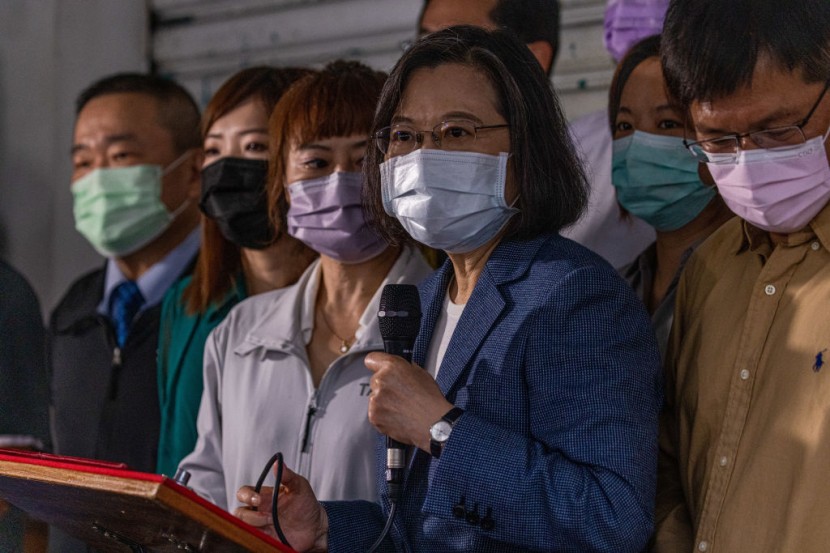
Taiwanese President Tsai Ing-wen quit as chairman of the Democratic Progressive Party (DPP) after her attempt to portray local elections as resistance to China's escalating hostility failed to draw public approval.
Tsai announced her resignation in a brief address on Saturday evening following the results of the polls for mayors, county heads, and local councilors focused on internal matters like the COVID-19 epidemic and crime, Al Jazeera reported.
President Tsai Ing-wen altered the context of the Taiwan election, claiming that the world was watching how Taiwan safeguards its democracy against military threats from China, which claims the island as part of its territory.
The Kuomintang (KMT), the main opposition party, led or won 13 of the 21 city mayor and county chief seats, including Taipei, compared to the DPP's five, following forecasts and comparable to the 2018 local elections.
Tsai Vows To Bounce Back, Continue Programs
At DDP headquarters, Tsai Ing-wen told journalists: "The results failed our expectations. We humbly accept the results and accept the Taiwanese people's decision."
In 2018, she quit as party head following poor results in the election that year. Tsai Ing-wen will continue serving as Taiwan's chief executive until 2024. She vowed that the DDP will rise again after the defeat.
"We don't have time to feel sorry," she said.
The Taiwanese president also said that she had refused the resignation, of Premier Su Tseng-chang, a prominent DPP member, to guarantee that her administration's programs were effectively executed.
Several local analysts do not believe China, which stated it would seize Taiwan by force if necessary, has a significant role in the latest Taiwan elections, per CNA.
According to National Taiwan University political science professor Yeh-ling Wang, "The international community has raised the stakes too high" and framed that the local Taiwan election will determine the country's existence.
Read Also: Russia Tells France To Stop Meddling in African Affairs; Macron Accused Moscow of Predatory Tactics
In August, China staged large-scale military drills targeting Taiwan in response to US House Speaker Nancy Pelosi's visit.
The increasing geopolitical tension between China and the United States has increased international interest in these elections.
More Young Taiwanese Are Concerned About Politics and China's Threat
Beijing considers Taiwan to be a province that broke away from China. But many Taiwanese see their island, which has its own government and a democratic system, as unique.
A referendum to lower the voting age to 18 is part of this election. Right now, only those who are at least 20 years old may cast ballots.
With the largest voter participation ever in 2020, younger people appear to be growing politically engaged.
China's threat has dominated political discourse among young Taiwanese people throughout their lives, according to BBC.
China policy is a contentious issue between Taiwan's two major political parties.
The KMT has a reputation for being pro-China. They have firmly denied being pro-China, but have encouraged economic ties with China and looked to be in favor of unification.
Their main rival, the DPP, won the 2020 presidential election with a resounding victory. Tsai has adopted a firm position against China, saying Beijing must respect Taiwan and Taipei will not succumb. Her stance helped her win the Taiwan elections that year.
At that time, Taiwanese locals expressed that Hong Kong demonstrations and Beijing's assault on civil liberties had sparked anxieties.
© 2026 HNGN, All rights reserved. Do not reproduce without permission.








